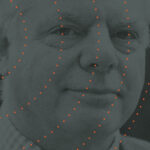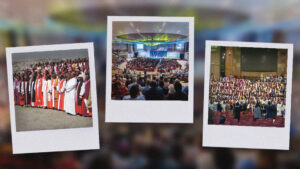He is the greatest enigma among the Founding Fathers, the greatest source of controversy—and one of the greatest writers in world political history. He had nearly boundless confidence in rational man’s ability to perceive errors in traditional belief. And he did more than any other founder to defend religious freedom for evangelical Christians. He might be regarded as an “ethical Christian” who couldn’t imagine that anyone truly believed in the Trinity. He was forward-thinking in the Louisiana Purchase, but he didn’t make good predictions in religion: “I trust there is not a young man now living in the United States who will not die a Unitarian.”
His name is Thomas Jefferson, of course. And the real “wall of separation” in American politics and religion concerns his own lofty writings on freedom when compared to his practice of slaveholding. These contradictions make him the subject of many biographies, including the most recent from Thomas Kidd: Thomas Jefferson: A Biography of Spirit and Flesh. Kidd is research professor of church history at Midwestern Baptist Theological Seminary in Kansas City, Missouri, and the author of many outstanding works, including The Great Awakening: The Roots of Evangelical History in Colonial America.
Tommy is one of my favorite historians, and I was delighted to invite him to Gospelbound to discuss Jefferson’s views on Christianity and politics. We also talked about how Christians should approach history in general.
Transcript
The following is an uncorrected transcript generated by a transcription service. Before quoting in print, please check the corresponding audio for accuracy.
Collin Hansen
He is the greatest Enigma among the founding fathers. He is the greatest source of controversy. He is one of the greatest writers in political history, anywhere around the world, and nearly boundless confidence in Rational man’s ability to perceive errors in traditional belief, according to historian Thomas Kitt, and he did more than any other founder to defend religious freedom for Evan Jellicle Christians. He might be regarded as a quote, ethical Christian, who couldn’t imagine that anyone truly believed in the Trinity. He was forward thinking in the Louisiana Purchase. But he didn’t make good predictions in religion, such as I trust, there is not a young man now living in the United States who will not die, a Unitarian. Oops. Now, of course, we’re talking about Thomas Jefferson, and the real wall of separation in American politics and religion concerns his own lofty writings on freedom when compared to his practice of slaveholding. These contradictions make him the subject of many biographies, including the most recent from Tommy Kidd, Thomas Jefferson, a biography of spirit and flesh, published by Yale University Press. What a great subtitle. By the way, Dr. Kidd is research professor of church history at Midwestern Baptist Theological Seminary in Kansas City, and the author of many outstanding works, including the Great Awakening the roots of heaven, Jellicle history in colonial America. Tommy is one of my favorite historians. And I’m delighted to invite him to gospel bound to discuss Jefferson’s views on Christianity and politics. And we’ll talk a bit about how Christians should approach history in general. Tommy, thanks for joining me on gospel bound.
Thomas Kidd
Thanks for having me.
Collin Hansen
Simply put, should we admire Thomas Jefferson?
Thomas Kidd
Well, there’s no simple answer to that. And I mean, especially in our current culture, we seem to have a really hard time knowing what to do with people like Jefferson, who, for for my money is, is quite admirable, and some important and enduring ways and his legacy has been used for, for good by people like Abraham Lincoln and Martin Luther King, Jr. But especially in his personal life, he did things that were sinful and despicable. And so, you know, generally we go to one extreme or another, with people like this, we got to extremes about everything in America these days. But but we either tend to cancel them or or we react with sort of patriotic apologetics and say, you know, any, anything negative you say about one of these people is a lie. So, we really struggle with that these days. But I, you know, I would say there, there are some things about Jefferson that we still should admire, while being candid about some of the dreadful things that he did in his life.
Collin Hansen
I think this this, this next question is related to the first, did he actually believe what he wrote? One of the things you, you argue is this, the dissonance between stated belief and practice, reality, is perhaps more acute for Jefferson than in any other American ever. Now, I think at some level, if this were in our own day, with our understanding of politics, we’d say, he’s just a total cynic. But I think what’s different about that era is that all of these men put their lives on the line. They’re all of their fortunes, their very lives, their family, everything was on the line if they lost. So how do you explain that?
Thomas Kidd
Well, I think it’s it’s partly that when he says all men are created equal, I think he has a narrower immediate implication that than what we hear today. And, and he realized, I think that that there were different levels at which that operated. I mean, the most immediate thing that he means by that is it’s a political statement about the people who are active in Anglo American politics. And that means, generally, why property owning men, those men are created equal, people like Jefferson are created equal. And he says that, it means that because really, in the political sphere to Jefferson, that’s, that’s all that that matter. Those are the people who were involved. And so, you know, Jefferson did not see everyone and everything is political. He saw just a relatively small group of people in Britain and America is having a public political life. And there were people just like him. Now, the problem with that, and again, I think Jefferson, grasp this problem is that Jefferson turned to the language of creation. In order to make that point, and so all men are created equal. And we you know, Jefferson knows, we know that that’s a universal claim. It certainly, you know, by the Genesis account includes women, because you know, male and female he created them. And if you accept the the unitary origins of the human race, which Jefferson actually raised questions about, but he knew that most Christians accepted the the Adam and Eve account in some form or fashion. And so that would include all races. But Jefferson also as the great word Smith that he was, knew that putting it on that kind of universal theological basis was the strongest argument you could possibly make for human equality. And so he did it and it was lovely, and it was powerful and it resident has resonated through American history. But it immediately gave people ideas in 1776, for instance, that the African American pastor millennial, Haynes wrote Liberty further extended in 1776, saying, Oh, well, if all men are created equal, then we shouldn’t have slavery. You could just imagine Jeffers. Wait a minute, that’s not what we’re talking about. So it kind of got out of control out of his hands almost immediately, as soon as the Senate
Collin Hansen
speaking of something that’s gotten out of hand, Jefferson’s views on the separation of church and state? I know, it’s a broad question, but I know you can answer that succinctly as well.
Thomas Kidd
Well, Jefferson is the founding eras, you know, one or two of the greatest champions of religious liberty for sure. And religious liberty for Jefferson meant that the government should not be policing people’s religious beliefs, shouldn’t be calling balls and strikes on doctrinal issues. And it also meant that he wanted to abolish all of the state established churches, in particular, Virginia’s and so he wrote the bill for establishing religious freedom. And then in 1786, Madison, got it passed through the Virginia Legislature and the Anglican Church, the Church of England had been this, the state established Church in Virginia, since the colonies founding, and now they say we’re not going to have an official denomination. And we’re not going to have any civil penalties for people having aberrant doctrinal beliefs. But that we’re going to maximize people’s religious freedom and take a step away from government run religion. To Jefferson, that did not mean the public absence of religion, it certainly didn’t mean government hostility towards religion, because, you know, part of what Jefferson is trying to do is to get the government to stop persecuting, most obviously, the Baptists, who Jefferson was certainly no evangelical and no Baptists, but but he thought it was loathsome that that the Virginia government was actively persecuting Baptists on the eve of the revolution, with dozens of Baptist ministers being thrown in jail for illegal preaching, he thought, This is ridiculous. These people are preaching, preaching sort of a totally acceptable version of Christianity. And Jefferson also knew that if they came after the Baptist, they would also come after him because he didn’t believe in the trinity or the divinity of Christ or the resurrection. So he thought, you know, we need to get the government out of the business of policing people’s beliefs, and just, you know, maximize free exercise of religion. And in that, that that was something that Baptists in particular, but a number of evangelicals, not only allied with, with Jefferson on that, but But absolutely celebrated him because of his courageous defense of evangelical dissenters.
Collin Hansen
Now, even as a religious skeptic himself, he did seem to have a role for Christianity, specifically, even in government. I mean, you mentioned that Well, I guess, more broadly, Concept of Religion, certainly in the declaration there, but you mentioned specifically the role that he saw Christianity playing in civilizing in his understanding the frontier. So could you explain a little bit more about that?
Thomas Kidd
Yeah, I mean, Jefferson believed, like virtually everyone in his world that Christianity was essential to virtue for most Americans. You know, how are you going? Where are you based? Our broad public ideas about morality and virtue, honesty, you know, neighborly love, those kinds of things. It’s you don’t have to make anything up. It’s just within the Christian tradition. And so education was profoundly Christian. And even stranger instance, in the early 1800s, the Jefferson agreed to government funding for a Catholic mission, actually, among the Kaskaskia Indians, for a missionary priest and schools and so forth, and actually thought that it was fine for the government to even give money for that sort of thing, which I’m not. I’m not sure. I would think that’s. But, but, but that shows you how much that Jefferson is not trying to eradicate religion or Christianity, that’s for sure. And in his first inaugural address, I think maybe it’s the most important moment where he talks about what are the strengths of our Republic, and he gives many instances, but he says it cat by our benign religion, and by that he meant Christianity, which inculcates virtue, I mean, and so the idea is, if you’re going to have a Republic, where the people are sovereign, you have to have a virtuous people. And for most regular people, the resource of virtue is their faith.
Collin Hansen
Now, why do you think in light of this, why is Jefferson remembered more as a skeptic of religion than as a champion of religious freedom that benefitted evangelicals, especially Baptists, because they’re both such a major part of his legacy? One of them having massive, positive effects for people like you and me and institutions that we serve. But I don’t really think many evangelicals would recall that about him.
Thomas Kidd
Yeah, I mean, I think it has more to do with the political alignments that we have today, where you can’t really imagine someone who today who is both heterodox personally, and also a great champion of religious liberty, and free exercise of religion. So this, this, I think, helps to account for the polarized views of Jefferson, which are totally typical and replicated and other historical figures, where the secular left claims him as being heterodox, which he was, and then the old being an entirely secular person, as far as his view of public life in America. And that’s wrong. You know, conversely, the Christian right, can’t imagine someone being the great defender of religious liberty and being heterodox and so they say he was a great defender of religious liberty and all this, although sometimes they get nervous about the wall of separation of church and state, which he said no 1802 letter to evangelical Baptist, by the way. And so they tried to figure out some way to say that Jefferson is actually a traditional Christian, which is completely wrong. And it’s, it’s the epitome of trying to wedge a historical figure like Jefferson, into today’s culture and political alignments, which is just bad history, one on one,
Collin Hansen
who are the political and or religious descendants of Jefferson today? Because he seems difficult to map for the reasons you just described right there. Onto our current moment. I mean, even for me growing up, I still recall all of the Jefferson Jackson dinners the Democratic Party used to do I don’t think that’s happening much anymore. They don’t seem to want to claim him as their founder, technically speaking, he didn’t found the Democratic Party, but effectively, he did. How does how is he supposed to fit today?
Thomas Kidd
He mostly doesn’t. I think you just have to start with Jefferson is he’s not like anybody, you know, today. I mean, I didn’t think that there, you know, back in the, in the 90s. That, you know, there was this moment of when Bill Clinton and the Democratic Congress passed the the Religious Freedom Restoration Act, which I think was a good moment for religious liberty. And that that was, you know, a moment in time when I think Democrats saw threats to religious liberty, not only for Christians, but for you know, more minority religious groups and so which I’m perfectly happy for religious liberty to be defended for all those groups and so but but I think in the past 20 years, we’ve really settled more into these if you’re on the left, then you’re also rigidly secularist and that and of course and right acts way that it does. And that that I think is unfortunate because I think Jefferson is, you know, he’s a classical liberal definitely not traditional Christian but in a Lockean sense. And also through the experience of watching the Baptist be persecuted in Virginia. He develops a really robust ideal of religious liberty for all. Which, which I think is, you know, a wonderful part of the American tradition.
Collin Hansen
Well, before I come back to Jefferson, I want to ask a couple questions about historiography here. One is that it feels as though you can either choose the 16th 19 project approach to history or else the Mount Rushmore, great men etched in stone vision, how do you think Christians ought to be viewing history, especially in this environment? Well, I
Thomas Kidd
I’m all for being candid about the past,
Collin Hansen
Winfield would be a good example of
Thomas Kidd
that. And, and I was, you know, criticized by certain outlets for being too harsh about Whitfield’s problematic relationship to slavery and slave owning. But But I Wakefield’s another example of somebody who I admire quite a lot, but I think his connection to slavery was despicable. And because he really was a pro slavery activist, as he was leading the first Great Awakening, so. So, you know, with with things like the 1619 project, I mean, if the idea is, it would be good for Americans to know, when the first documented shipment of slaves came to the American colonies. Um, I’m all for that. I think that that should be part of our civic memory. And it’s something that’s widely known in America, but I guess where I draw the line is, you know, what, it’s really the history is basically being used for partisan political purposes. And or history is being used to sort of tout our own virtue of saying, look how progressive we are, because we hate the right people in the past. That’s pretty paltry form of virtue. And I think it’s a it’s more mature, you know, just even in a secular sense, to be chastened by the past, and to say, but for the grace of God, there go i and to muse on what, you know, cultural traps we might be in. And because our culture can convince us of things as being normative, that definitely are not, and certainly in a Christian sense, that’s true. So I, you know, I’m, I can go a long way, if we’re talking about historical facts, and being candid about people who we even we consider our historical heroes. But when it becomes an exercise in touting our own virtue, because we condemn the right people in the past that I can’t go along with Cloud.
Collin Hansen
Now, I fully expect that you will shoot me down on this next question, and you’re the you’re the right person, I trust to shoot me down on this one. I was thinking about this years ago with a friend and probably because my bent is so historical, I like to frame some of our struggles in terms of historiography, it strikes me that a lot of our political battles now and cultural battles boil down to whether you think American history is basically bad, with some sprinkling of good or basically good with some rotten apples mixed in. Basically, it feels like some sort of fight between Howard Zinn and David Barton. It’s kind of what it feels like to me. Do you see anything similar? Or, again, I’m sure that’s overly reductionistic. But it feels like it maps pretty often on people’s instincts as it relates to politics, and culture.
Thomas Kidd
I’m sure that that’s true for the popular discussions of history. And I think it’s increasingly true in the academic guild, where sort of overtly partisan political history now is more rewarded by history departments than than ever before. And but, you know, I, as I’ve said in my previous answer, I mean, I’m ambivalent about this, because I think there’s a theological sense in which all history is basically bad, because I think we’re bad people. And so, you know, I say this as a Calvinist I mean, I, that that we’re not good. We’re not naturally good. And people, especially when they’re given power, do bad things with it. That’s not universally true, but but it is often true and that, you know, there’s just temptations that come with power. And so I definitely wouldn’t want to go in the direction of American history being uniquely bad which I think Is the tone of a lot of, you know, secular historiography today. And this sort of, you know, self immolation about, you know, who can hate America the most and, and, and accuse the most people of being racist and so forth. I mean, I think all that excessive. But I guess, you know, to me, I have in that sense of sort of theological view of history that there’s only one person that I expect moral perfection from is certain carpenter son from Nazareth. I mean, and everybody why, why would it be surprising that say, Jefferson abused his power or that Whitfield abused, abused his power, it really would be surprising if they didn’t. And, and in that sense, history is, is a warning to us as those of us who are granted various forms of power and authority to be very, very careful, because the record, historically is pretty grim about what people often do with their power. Is that
Collin Hansen
not the kind of historical or historiography done by the writers of the Bible?
Thomas Kidd
Sure, is it sure as I would say that, you know, the, for Christians looking at the Bible. You know, we talked about David and Peter and Paul and all this but you know, with with somebody like Paul, I mean, it’s fits a little more easily into the kind of Christian you know, Christian view these things because he did extremely bad things, and then he got converted. And then he shaped up, you know, I think what’s what’s I mean, with somebody like Woodfield, what’s even more troubling, is a God who was doing great things through his ministry, while he was actively involved in the sin of promoting slavery. And that that is, I mean, for me personally, that is a perplexing observation.
Collin Hansen
Just I’ve been thinking about this lately, because I’m so grateful for a lot of the attention that’s been put on the family on the role of fathers and all that kind of stuff. And then I’ve asked people, could you give me an example of a good father in Scripture? And found one yet, I mean, it’s just the father. I mean, it’s just amazing. Given the historical examples that we have, now we can, we can deduce that Joseph was a wonderful stepfather to Jesus, we don’t have any evidence. Otherwise. The point is, we don’t really have any evidence, one way or another about that just very scant in there. But yeah, other than God, the Father is just amazing that that doesn’t appear to be what the Bible is trying to do. It seems to be trying to show us something that’s common to humanity, in contrast to the god, man. And so anyway, well, a couple couple last questions on Jefferson. Thanks for working through some of that historical, graphical and biblical work with me. But you’re right this that in contrast to the classical Protestant belief and salvation by grace alone, Jefferson believed that God would save people who believe behaved morally. And this belief made Jefferson especially critical of the French reformer, John Calvin. I was kind of surprised to know that Jefferson had engaged with Calvin’s work, though, I think it’s worth noting that Jefferson’s biggest political opponents were descended from the Puritans in New England, which has to be I mean, I can’t be a coincidence there. My thought was, you also pointed out that he described his views as anti Calvinist. And then this is just hilarious that Calvin was an atheist and that his religion was was demonic. Not like he exactly held back on this. I was wondering, did it have anything to do with his affinity the for the French revolutionaries, and it could have been multiple angles he was coming at in at this, whether through France, or it’s just anti Federalist view, or just straight up theological interest. Tell us a little bit more about his anti Calvinist views.
Thomas Kidd
Yeah, I mean, he it definitely is political, that he finds that the people who are his staunchest political adversaries are at least out of a Calvinist background in New England, and many of them are Calvinists, pastors or politicians. And so he associates their politics with their theology. But he also, as with many things like this, whichever send I mean, he really does have a clear theological stance, that he he’s just allergic to anything that to him confounds seemingly confounds common sense. And so he thinks that and I actually think Jefferson is right in the assumption that he’s making me that it seems like most people All around the world throughout time, who are not converted Christians think that your good works are the key to whatever salvation looks like. I mean, that seems to be sort of the common sense of the matter, until God intervenes with His grace. I mean, so. So I think what Jefferson is saying is that this idea is about election and predestination. And you, you know, you can’t contribute anything to your salvation, you know, and it’s completely out of your hands. He just says, it’s not reasonable. What’s reasonable to Jefferson, is that you do more good than bad. And, you know, God will see that. It’s just, you know, what he’s saying is, is unbiblical. So I think that that’s where it’s coming from. It’s similar, in that sense to his view of the Trinity. I mean, he just says, this, just, it doesn’t make any sense. It doesn’t literally does not add up. And so it can’t be true.
Collin Hansen
So just clarify my my lack of understanding here, Madison, of course, his disciple, is educated by the Calvinists, right. In Princeton.
Thomas Kidd
Yes. He’s a Weatherspoon student. Weatherspoons. Right. So
Collin Hansen
you’re gonna get that Presbyterian theology and some of that common sense, realism, things like that, right. But Jefferson did have some of that, but not to the same degree as Madison, is that correct?
Thomas Kidd
No, and I mean, there there are Calvinists sources within Jefferson, Jefferson, Anglican tradition. And, you know, the 39 articles, the Anglican Church is pretty distinctively Calvinist. And Jefferson is very learned in, in theological debate, and and all that. I don’t know that he, he’d certainly didn’t read Calvin extensively. So I mean, I think he is talking about Calvinism, as represented by his Federalist, political enemies. But his his familiarity with religious topics really is mostly about the Bible itself, of which he is he’s deeply familiar, especially in Greek. He regularly reads the Bible, the New Testament in Greek, and he regularly reads the Septuagint in Greek, just for personal edification, which is extraordinary when thinking about he’s the President of the United States, and he’s taking time to read the Bible in Greek. And so he really is quite learned about a lot of these things. But he, he, when they’re putting together the Library at the University of Virginia, he looks to Madison to tell him more about what theologians should be included.
Collin Hansen
Forgive me for forgetting from the book, but was Jefferson’s Anglicanism influenced by the Latin Aryan movement?
Thomas Kidd
I’m sure it was. I mean, I think he I think he he, you know, to the extent I mean, I don’t think he defined himself as an adult as an Anglican though he was, I mean, he was a vestryman at times in terms of the lay leader in the Anglican Church, but I got, I think he, you know, pretty quickly came over to that mentality of, as he said to one correspondence, I am a sec to by myself, so far as I know, that he’s just sort of saw him as an individual, ethical Christian, but part of no denomination.
Collin Hansen
Yeah, mainly, I was just wondering, some of the stuff he’s talking about. It was just in the air. At the time, it’s like, not all that it was, it wasn’t entirely unique to him. Even within his Anglican tradition, there were plenty of movements toward this ethical Christianity that you’re
Thomas Kidd
describing. That’s right. I mean, a lot of people are interested in I think, Ben Franklin is the way that coming out of the Puritan tradition, tired of fighting about theology and doctrine, and can’t we just have an only ethical version of Christianity.
Collin Hansen
And Adams himself also, famous opponents turned, good friend died the same day, you know, was also the one that one that laps Puritans there as well. You know, last question had just a little bit of scene setting in light of especially your entire corpus. I think many American evangelicals might be surprised that the founding coincided with an ebb in Christian practice, especially with membership, church membership. I’m just wondering if you could give us a little bit more of that context in terms of the unique spiritual conditions of the late 18th century. You know, one of the big critics I, when I did a book on revivals that a lot with Timothy Dwight was pretty eye opening to read Timothy Joyce reflections on the state of Yale when he came to be keen to take it over.
Thomas Kidd
Yeah, I mean, it depends on how you look at it, I suppose. I mean, people like Dwight are always good. Been to sort of I mean, the period of the Jeremiah tradition, and it’s continued in the church today, you know, everything’s worst. For. I mean, I think, you know, pastors when they say that really mean it, but it’s also a rhetorical move for mobilizing the church. But I do think that there was a transition time that, you know, during the Revolutionary era, when the traditional denominations Congregationalist, Presbyterians, Anglicans, were somewhat languishing, especially as settlement moved out onto the frontier. And you have the coming of the Baptists and Methodists, who are going to one be the ones who win the frontier for American religion. And they’re going to change the whole landscape of American religion during the Second Great Awakening. But the Revolutionary period, in that sense, is that kind of shifting and change. But you know, if you’re talking about, say, church affiliation, the percentage of church affiliation is in America is much higher by say 1850 than 1776.
Collin Hansen
That’s what I was. That’s what I was trying to get out there. I think I mean, that that explains it so well, that that was a unique transition period from the largely institutionally based, I mean, in a sense revivalism of the Puritan history into the more democratic populist religions that we come to know today, at a time of significant enlightenment influence through a variety of sources, English, Scottish, of course, as well as French. So I think a lot of people just don’t think of that, because as Christians were so oriented toward thinking about our origin story, both biblically and then we kind of equate that with the American founding, not realizing the American founding origin story from a religious perspective is, is quite unexpected. And we just think of so much of the founding era as being that the purview of the God and country types. And it just wasn’t quite that, hey, I know you’ve done so much work on this with Barton’s work and everything else.
Thomas Kidd
Yeah, it’s just more complicated than we tend to think. But I’m, what I’m struck by is that, you know, the Methodist and Baptist in particular match the massive growth on the frontier in the early 1800s. With what amounts to one of the most successful church planning campaigns in human history. I mean, because as massive as the growth was, the church growth was even greater. And so it’s a neat story, but it sort of doesn’t fit, you know, because American Christians think it must have been the best at the time of the founding. It’s gotten worse from there. And it’s not quite that way.
Collin Hansen
Not the case. I mean, you can you can see all through American history, you know, the early, earliest 20th, beginning of the 20th century, kind of high period, but then there’s significant decline, and then the post war period and significant increase, and then another decline. That’s kind of, you know, been in place, at least, you know, since the 90s, in some ways, early 90s, in some ways. So, I think a lot of people just, I think it might be comforting to them to know that it’s a series of ebbs and flows. It’s not just some sort of peak and then a collapse. Right.
Thomas Kidd
And that’s even more true globally. I mean, just, you know, people will say, can you think, can revival happening again, I’m like, well, it’s going on all over the Iran and China. I mean, so. So what do you what are you talking about? Of course, it couldn’t happen. It’s happening right now.
Collin Hansen
And that, and I think, I mean, this would be to, again, reductionistic, to say, but I don’t know how many people could be more attributed to that growth that peaked around 1850, then into the Civil War, and Thomas Jefferson. I mean, I don’t know how many people would be more responsible for that between the Louisiana Purchase. And because of his he is on religious liberty and defense of the Baptists and other establishment religions.
Thomas Kidd
Right at I mean, Jefferson and Madison, I think, you know, in all sincerity, they made the argument that Christianity will be stronger if we get the government out of the business of promoting denominations. And they’re right. That’s just not the form of Christianity that Jefferson thought.
Collin Hansen
It’s true. He did think Yeah, exactly. Going back to the quote, I trust. There is not a young man now living in the United States, who will not die a Unitarian. Thankfully, he was wrong about that. I’ve been talking with Tommy Kid, a Midwestern seminary about Thomas Jefferson a biography of spirit and flesh. knew from Yale University Press final three here quick ones, Tommy. How do you find calm in the storm?
Thomas Kidd
Oh, well, that that answer begins and ends with the Lord. That’s that’s for Sure, but and, and his faithfulness in the in the worldly equation, I find it through fishing. Nice. I’m quite an avid kayak fisherman. So that’s my peaceful place.
Collin Hansen
Are you learning to explore the the areas that your new environments?
Thomas Kidd
Yes. Exploring and catching.
Collin Hansen
Good. And where do you find good news today? Perhaps you’ve already alluded to that with Iran and China in some of these global revivals?
Thomas Kidd
Yeah, I think when you look at the global church, including immigrant populations in America, that there’s lots of reason to be encouraged. You know, it’s just, it seems like the evangelical church in America, especially native born is in some decline. But as you said, I mean, those those patterns come and go and the Lord’s providence and but there’s plenty of hotspots of revival happening around the world in some, like in Iran is I mean, we can infer that there’s even a lot more going on there than can be documented. So there’s reason to be encouraged.
Collin Hansen
And finally, what’s the last great book you’ve read?
Thomas Kidd
I read a terrific book about I forget the author, but it was about the the background to Dostoevsky is crime and punishment. I think the book was called the Center and the saint. And I’m not a Dostoevsky expert, but I am a big fan of Dostoevsky. So So I love you know, in my free time, quote, unquote, which basically means my commute. I listened to a lot of books like that.
Collin Hansen
Wonderful. And Tommy Kidd has been my guest on gospel bound talking about Thomas Jefferson a biography of spirit and flesh. Thanks, Tommy.
Thomas Kidd
You’re welcome.
Collin Hansen serves as vice president for content and editor in chief of The Gospel Coalition, as well as executive director of The Keller Center for Cultural Apologetics. He hosts the Gospelbound podcast and has written and contributed to many books, most recently Timothy Keller: His Spiritual and Intellectual Formation and Rediscover Church: Why the Body of Christ Is Essential. He has published with the New York Times and the Washington Post and offered commentary for CNN, Fox News, NPR, BBC, ABC News, and PBS NewsHour. He edited Our Secular Age: Ten Years of Reading and Applying Charles Taylor and The New City Catechism Devotional, among other books. He is a member of Iron City Church in Birmingham, Alabama, and he is an adjunct professor at Beeson Divinity School, where he also co-chairs the advisory board.
Thomas S. Kidd is research professor of church history at Midwestern Baptist Theological Seminary and the author of many books, including Thomas Jefferson: A Biography of Spirit and Flesh (Yale, 2022), Who Is an Evangelical? The History of a Movement in Crisis (Yale, 2019), Benjamin Franklin: The Religious Life of a Founding Father (Yale, 2017), Baptists in America: A History with Barry Hankins (Oxford, 2015), and George Whitefield: America’s Spiritual Founding Father (Yale, 2014). You can follow him on Twitter.































